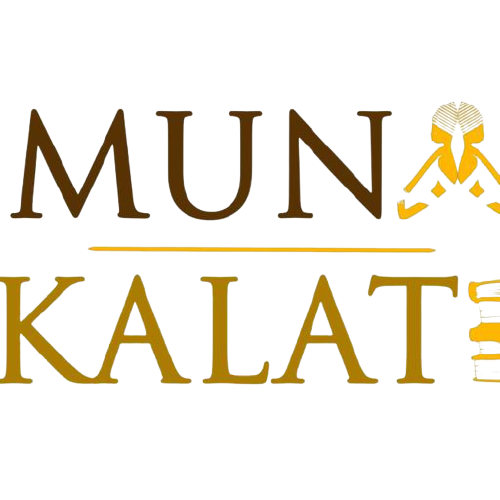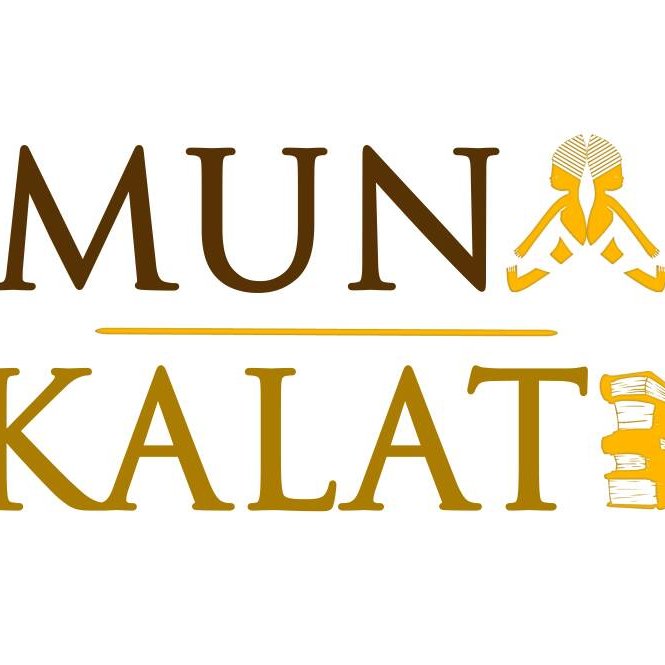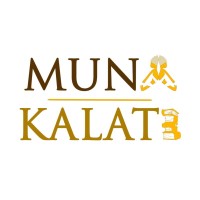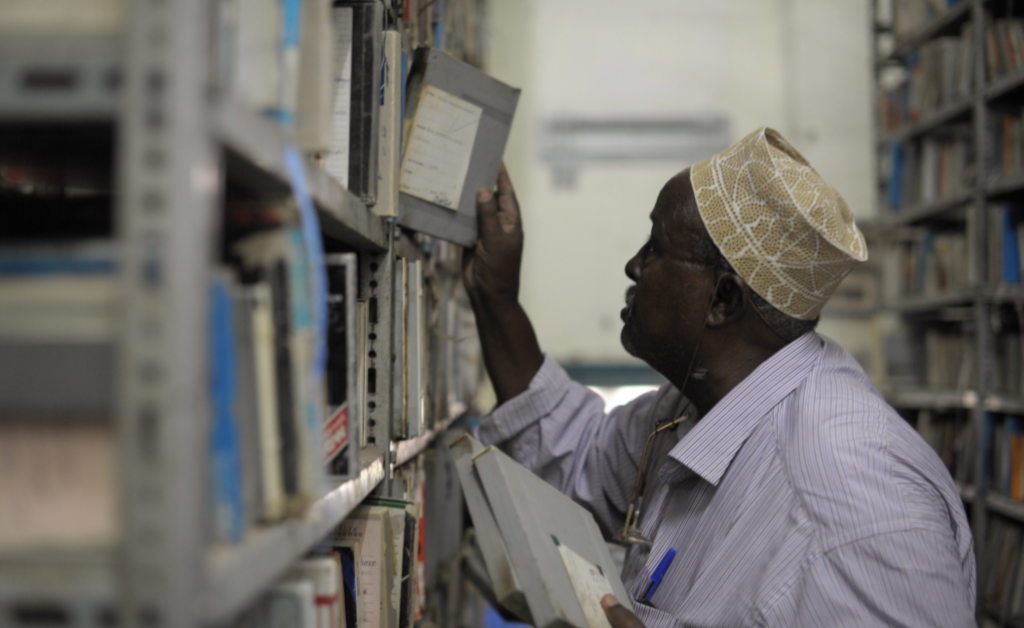The writer Léandre Sahiri, like several other authors, believes that Africans do not read: since all peoples are predisposed to reading, the reasons for this lack of interest in reading must be questioned. Every person who is born must be initiated into learning a language. And it is through the mastery of reading and writing systems that this person acquires the ability to read.
In this post, we will not cover the entire chain or environment that promotes reading, but we will focus on libraries. More concretely, it is a question of establishing the various responsibilities that hinder the development of a reading culture in general and children’s literature in particular. This diagnosis is only the fruit of our experience as a young researcher in the libraries of Cameroon.

Image source
The problems that readers encounter when visiting libraries are legion and diverse: the lack of updating of the collection, the absence of online information on the collections, the absence of books on African realities, the lack of professional librarians, the bad faith of some readers and the commodification of reading services.
- The obsolescence of the collections
The collections found in Cameroonian libraries are mostly old.
They are the fruit of the first collection, when the library was set up. They are not renewed and researchers have difficulty finding recent works in these libraries.
As an illustration, in Cameroonian universities, recent books are very often donated by individuals or authors (teachers) who wish to share their writings with students. Recent works published under other skies are almost non-existent. This non-existence finds its basis in the absence of a visionary policy of the promoters and the lack of financial means. In addition to this problem of obsolescence, there is also the absence of online information on the collections.
- Online catalogue does not exist
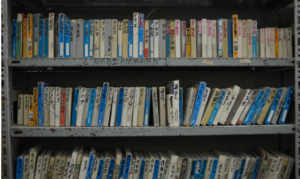
African library shelf_Source
Libraries in Cameroon have almost no online catalogue. Even if they do exist, these catalogues are no better able to provide information on the works that make up the collections. This can be verified on the site of the University of Yaoundé 1. The University of Dschang, like other Cameroonian universities, does not have an online catalogue. This lack of online information does not arouse the interest of people who might move from one city to another in order to find a specific work. On the site of the Central African University (UCAC) a general idea of the collection is presented but it is not possible to know exactly what works are available. In the same vein, it is not possible to have an idea about the works on children’s literature.
- Absence of local production
Not only are the books not recent publications, but there is also a significant absence of local productions and especially children’s literature.
This problem is certainly linked to the lack of a policy for the cultural industry that is the book or publishing industry, but we must not lose sight of the fact that libraries rarely make purchases.
Books in Cameroonian libraries are mostly foreign because they are very often donated by foreign countries.
To a certain extent, these countries promote their writings and therefore their cultures to the detriment of local cultures. As a result, readers are generally far removed from the realities they encounter in the readings. It is more than important to establish partnerships between publishers and libraries in order to provide the latter with local productions and children’s literature.
- Lack of professionalism
Another factor that weakens libraries in Cameroon is poor governance.
These libraries are staffed by people who are not trained as librarians but who serve readers. These people cannot bring about the necessary reforms, just as they are often unable to respond to the aspirations of users.
Children’s literature, by way of illustration, requires special attention since the librarian is very often called upon to guide the choices of both children and parents. The maintenance of documents, cataloguing, orientation of users, etc., which are essential in a library are thus relegated to a lower level, hence the decadence of some libraries.
- Crooked readers
We also have a type of reader that is not at all conducive to the prosperity of libraries.
Many books in libraries have missing pages. These pages are torn out by readers for a variety of reasons and are purely selfish in the sense that one cannot be interested in information found in the public domain and deprive others of access to it.
The documents are often also in a dilapidated state or even worse, disappear outright from the collection because they have been borrowed but not returned by the reader. It is therefore important to raise the awareness of readers through workshops on the use of collections in libraries. This awareness is most effective when it takes place in childhood or adolescence, periods during which the initiation to reading takes place.
- Sale of library services
The last obstacle we can mention is the sale of library services. In most libraries in Cameroon, access is conditional on the payment of a sum of money.
In a context where reading is not the best shared thing, and with the precarious economic situation, this requirement is not the kind to arouse the enthusiasm of readers. It is therefore essential, even urgent, to promote free access for all citizens.
In countries such as Spain or Italy, access to libraries is free. This allows pupils, students and teachers to stay there for their research and the average citizen to consider it as a place of entertainment.
The problems faced by libraries in Cameroon, which are at the root of the lack of enthusiasm for reading, are legion. We have listed just a few in this reflection.
It is therefore urgent for the Cameroonian government or at least for the cultural and academic institutions concerned to be able to resolve these problems in order to promote the emergence of the institution that is the library. These solutions include creating shelves of children’s literature in all libraries; acquiring recent works in order to update collections; making available online catalogues to facilitate access and training library staff.
The importance of libraries in an emerging country is well established. The culture of reading is a dynamic that is built from an early age and transmitted from generation to generation.
